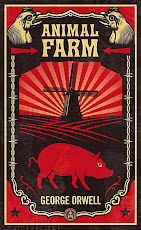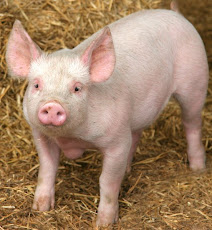Summary
There is a lot of action that occurs in the exposition of this novella. From the beginning the problem is pointed out to the reader, and that problem is that the animals are very unhappy and disgruntled with the way that they are being treated. After having a meeting with the “wisest” and oldest pig on the farm named Old Major, they are informed that a rebellion is coming and that they should be prepared for it. Old Major tells them that men are the enemies because all they do is take from the animals and they fail to give anything back. He also tells them that all they do is provide the animals with the bare minimum that will prevent them from starving, and keeps the rest for their selves.
During the next three months after that speech is given all of the animals have a new outlook on life and on a Midsummer’s Night Eve, the Rebellion occurs and the farmer and his family are kicked out. Once this occurs the animals quickly begin to dole out rules and regulations and set up the 7 commandments. Each individual animal is given individual tasks and the pigs are put in charge because they have “superior knowledge”. As the months go by, Mr. Jones the farmer, attempts to get his land back many times but is always unsuccessful.
Quote
“Man is the only creature that consumes without producing…yet he is lord of all of the animals” (Orwell 29).
Reaction
Orwell begins the novella with excitement and that is something that I truly enjoy. He is able to grasp my attention in the expository which is something that many authors fail to do. Also, the way that he personifies the animals is uproarious. Many of the characteristics that Orwell uses to personify the animals are exactly what humans are like. Thinking about the ideology behind all of this makes so much sense. Man does not provide, and it is only right for the animals to rebel because for the most part, they are doing all of the work. This also occurs in real life under the tyranny of some dictators, especially due to the fact that people have rebelled against them.
Friday, May 28, 2010
Subscribe to:
Posts (Atom)


